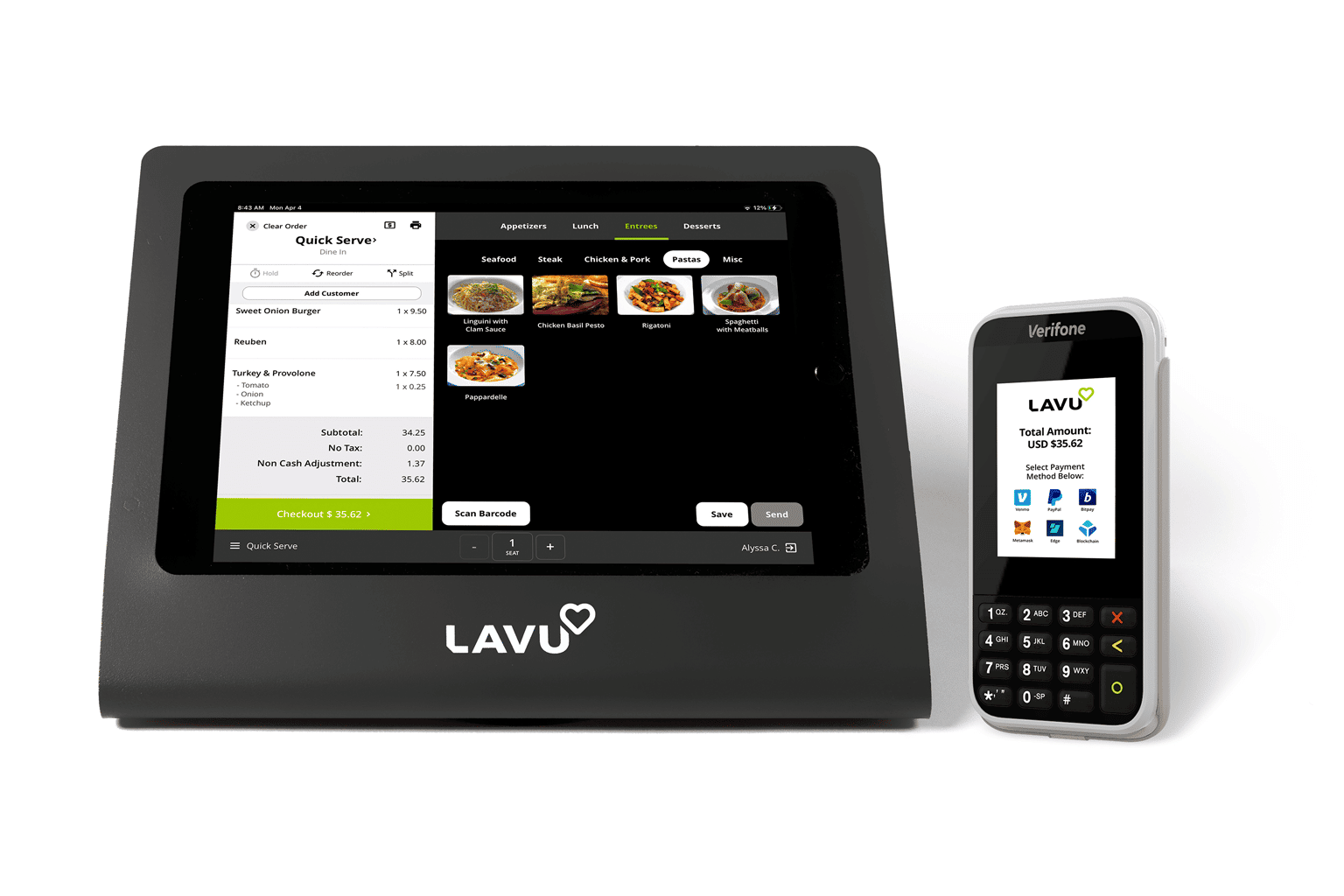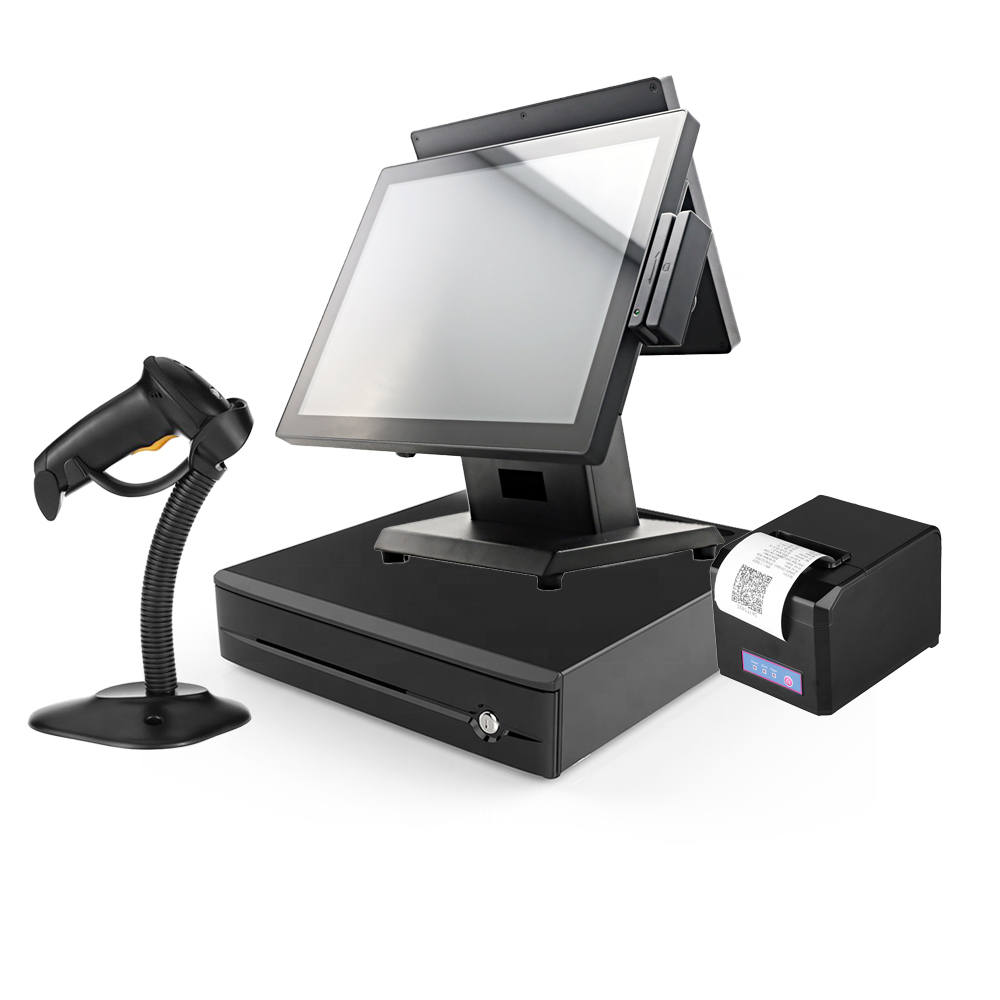Recognizing the Relevance of POS Software Application in Modern Retail Workflow
In today's retail landscape, the function of POS software application has actually ended up being increasingly substantial. These systems have actually changed from basic money signs up to complex devices that enhance various aspects of procedures. They not just simplify deals however also give understandings that can form service approaches. Understanding how these systems influence customer experience and supply management is necessary for any kind of merchant seeking to remain competitive. The implications of these improvements require additional expedition.
The Advancement of POS Software Application: From Purchase Processing to Comprehensive Solutions
As retail settings progressed, so also did the capability of Point of Sale (POS) software, which changed from basic deal processing systems to advanced, all-encompassing solutions. Initially, POS systems primarily dealt with sales deals, managing sales register and printing invoices. With innovations in innovation, these systems started integrating stock administration, consumer relationship administration, and sales analytics. Retailers recognized the need for real-time data and smooth operations, prompting the advancement of cloud-based POS options that permitted remote gain access to and enhanced scalability.Additionally, the rise of mobile commerce required POS systems to adjust, making it possible for purchases through tablets and smartphones. This transformation not just streamlined procedures but also enhanced reporting capabilities, allowing merchants to make educated decisions based on detailed data understandings. Subsequently, contemporary POS software has come to be integral to retail technique, offering as a multifunctional device that sustains numerous operational facets past mere transaction handling.
Enhancing Consumer Experience Via Advanced POS Includes
While numerous stores concentrate on operational effectiveness, advanced POS features progressively focus on improving the consumer experience. Modern POS systems currently supply capabilities such as mobile repayment choices, personalized promos, and customer commitment programs, which foster a more engaging buying atmosphere. By simplifying the checkout procedure, these systems lower wait times, enabling consumers to full transactions promptly and efficiently.Additionally, integrated customer connection monitoring (CRM) attributes allow merchants to track purchasing habits and choices, promoting customized advertising efforts. This personalization not only constructs consumer commitment but additionally improves total satisfaction.Moreover, advanced analytics provided by POS systems can aid retailers comprehend consumer trends and choices, enabling them to make informed decisions regarding product offerings and store designs. Eventually, the focus on client experience with innovative POS includes not only satisfies modern customer assumptions yet also drives repeat business and enhances profits for retailers.
Improving Supply Administration With Integrated POS Solutions
Integrated POS systems play a necessary function in enhancing stock monitoring by automating processes that commonly called for considerable hands-on effort (Restaurant POS Software). These systems make it possible for retailers to track stock levels in genuine time, getting rid of discrepancies that frequently develop from hand-operated supply counts. With functions such as barcode scanning and automated supply replenishment signals, organizations can keep ideal supply levels without overstocking or stockouts.Furthermore, integrated POS systems promote exact forecasting by examining historical sales data, enabling retailers to make informed getting choices. This predictive ability assists services adapt to transforming customer needs and seasonal trends much more effectively.Additionally, the centralization of supply data throughout several sales channels improves exposure, enabling retailers to manage their stock much more efficiently. Eventually, the assimilation of POS systems right into inventory management simplifies procedures, minimizes human error, and contributes to boosted profitability
Real-Time Sales Tracking and Reporting for Informed Decision-Making
Precise stock administration lays the groundwork for effective sales monitoring and reporting. Real-time sales tracking allows merchants to check sales efficiency as it happens, supplying prompt insights right into customer getting patterns and patterns. This ability allows businesses to react promptly to changes in need, optimizing stock levels and reducing overstock or stockouts.Moreover, integrated POS systems promote the generation of detailed records, highlighting key metrics such as sales by category, period, and individual items. Such reporting capacities equip merchants to make data-driven choices, identifying effective strategies and locations needing enhancement.

The Role of POS Software Program in Consumer Relationship Administration
POS software plays a necessary role in boosting customer partnership management by making it possible for retailers to apply customized advertising strategies. By assessing customer information, companies can customize promotions and interactions to meet individual preferences. Additionally, these systems promote the advancement of boosted commitment programs that motivate repeat organization and enhance consumer engagement.
Personalized Advertising And Marketing Strategies
As stores significantly seek to improve customer loyalty and engagement, individualized advertising and marketing methods have actually emerged as a necessary component of efficient consumer partnership management. POS software plays an important function in this process by collecting and assessing consumer data, making it possible for stores to tailor advertising initiatives to specific choices and purchasing habits. By leveraging insights from acquisition histories, stores can produce targeted promotions and customized communications that resonate with clients, promoting a much deeper link. Additionally, the assimilation of POS software with customer partnership monitoring systems permits smooth monitoring of client interactions, guaranteeing that advertising strategies continue to be relevant and timely. This data-driven approach not only improves client contentment yet also drives sales and encourages repeat company, solidifying the retailer's market position.
Enhanced Loyalty Programs
Sellers are increasingly identifying the relevance of loyalty programs in promoting lasting client relationships and improving total involvement. POS software plays an important function in the development and administration of these programs, enabling stores to track client choices, purchases, and actions successfully. By leveraging data analytics, services can develop individualized rewards and rewards that resonate with private consumers, thereby increasing participation in loyalty programs. In addition, POS systems enable smooth combination with mobile apps and electronic systems, helping with very easy access to incentives and promotions. This not just boosts customer complete satisfaction yet also drives repeat company. Inevitably, POS software equips sellers to cultivate much deeper connections with their clientele, transforming occasional consumers right into dedicated clients through targeted and purposeful involvement strategies.
Incorporating POS Systems With Ecommerce Operating Systems for Omnichannel Success
To attain real click here omnichannel success, smooth combination in between point-of-sale (POS) systems and e-commerce systems is necessary. This assimilation enables sellers to unify their inventory monitoring, guaranteeing that item availability is accurately shown throughout both online and physical stores. Consumers gain from a natural shopping experience, where they can easily change between channels without experiencing discrepancies.Furthermore, integrated systems assist in real-time information sharing, enabling businesses to evaluate customer habits and choices better. This data-driven technique permits merchants to tailor marketing methods and enhance stock levels, inevitably boosting client satisfaction and driving sales.Additionally, the ability to process transactions throughout platforms simplifies operations, reducing the risk of mistakes and improving general performance. As sellers significantly take on omnichannel methods, the integration of POS systems with shopping systems stays a critical consider achieving sustainable growth and maintaining affordable advantage in the vibrant retail landscape.

Future Fads in POS Technology and Their Influence On Retail Procedures
As retail operations advance, future trends in POS modern technology are readied to improve the landscape significantly. The rise of cloud-based services, developments in mobile POS systems, and the benefits of AI assimilation are among the essential growths expected to improve effectiveness and customer experience. These improvements guarantee to streamline procedures and foster a more dynamic retail environment.
Cloud-Based Solutions Increase
With the enhancing reliance on technology, cloud-based POS services are transforming retail operations by providing enhanced adaptability and scalability. These systems make it possible for sellers to gain access to real-time information from more info anywhere, helping with better decision-making and customer care. By leveraging cloud infrastructure, services can decrease ahead of time costs related to equipment and software application setups while making certain smooth updates and upkeep. In addition, cloud-based options sustain multi-location monitoring, enabling sellers to integrate stock and sales across various outlets effortlessly. This flexibility is essential in today's busy market, where consumer preferences change swiftly. As more retailers embrace these options, they can anticipate enhanced functional performance and an extra receptive technique to market demands, ultimately enhancing customer satisfaction and loyalty.
Mobile POS Innovations
The evolution of retail technology continues to shape operations, particularly with the surge of mobile POS advancements. These systems enable sellers to process purchases anywhere within the shop, improving customer involvement and enhancing checkout processes. Mobile POS remedies boost supply management by permitting instantaneous accessibility to supply degrees, helping staff aid customers much more successfully. Additionally, they facilitate individualized buying experiences via incorporated consumer information and commitment programs. As smart phones end up being progressively advanced, stores are adopting attributes such as digital invoices and contactless repayments, furthermore maximizing the acquiring trip. The shift in the direction of mobile POS not only enhances functional effectiveness yet likewise straightens with the expanding consumer preference for ease, ensuring that sellers remain affordable in a quickly advancing market.
AI Combination Benefits
AI assimilation represents a transformative leap in POS innovation, supplying merchants a myriad of advantages that enhance functional performance and consumer experience. By leveraging maker learning formulas, sellers can analyze purchasing patterns and optimize inventory monitoring, minimizing waste and stockouts. Furthermore, AI-powered analytics supply customized advertising and marketing recommendations, enabling targeted promos that boost customer interaction and loyalty (Restaurant POS Software). Moreover, get more info chatbots and online assistants streamline client service, enabling for quicker resolution of inquiries and enhancing the total buying experience. Anticipating analytics can likewise forecast demand fads, allowing smarter staffing and source allowance. Ultimately, the integration of AI in POS systems encourages retailers to make data-driven decisions, fostering an one-upmanship in an ever-evolving retail landscape
Often Asked Questions
What Are the Costs Connected With Executing POS Software?
The prices related to applying POS software application can consist of software program licensing fees, equipment costs, installation fees, training costs, and ongoing maintenance. Each factor adds to the general investment essential for an effective implementation.
Exactly How Can Tiny Retailers Take Advantage Of POS Systems?

What Hardware Is Needed for a POS System?
A normal POS system needs vital equipment parts, including a touchscreen monitor, cash money drawer, barcode scanner, invoice printer, and settlement terminal. These elements collaborate to facilitate reliable purchase processing and inventory administration for merchants.
Can POS Software Be Personalized for Details Retail Needs?
POS software program can indeed be personalized to meet details retail demands. This adaptability allows companies to tailor attributes, interfaces, and reporting devices, improving operational efficiency and offering an extra individualized experience for both team and clients.
Just How Protected Is Client Data in POS Solutions?
The safety of consumer information in POS systems varies widely. Lots of systems carry out security, protected gain access to controls, and routine updates, but susceptabilities can still exist, requiring ongoing caution and positive actions from sellers to secure delicate information. By simplifying the check out procedure, these systems minimize wait times, permitting customers to total purchases swiftly and efficiently.Additionally, integrated client connection administration (CRM) features make it possible for merchants to track purchasing choices and behaviors, promoting customized marketing efforts. As stores significantly seek to improve customer loyalty and involvement, individualized advertising techniques have emerged as a vital part of efficient customer connection administration. Furthermore, the assimilation of POS software program with customer connection administration systems permits for smooth monitoring of consumer communications, making sure that advertising and marketing techniques continue to be appropriate and prompt. Clients benefit from a cohesive shopping experience, where they can conveniently switch in between networks without experiencing discrepancies.Furthermore, integrated systems help with real-time information sharing, making it possible for services to evaluate customer habits and choices more effectively. Little stores can benefit from POS systems with improved purchase effectiveness, streamlined inventory monitoring, and improved consumer understandings.